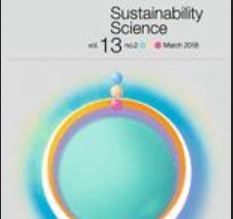
By Paola
Abstract
By analyzing 26 cases in the EJ Atlas for Sri Lanka, their causes, the impacts, the social actors involved, the forms of mobilization, and the main outcomes of the conflicts, this article examines in what ways activities aiming at economic growth produce socio-environmental conflicts. Such activities increase the social metabolism causing changes that translate into environmental, social, and health impacts which due to inequality of power are unequally distributed. As a result, those who are negatively impacted sometimes mobilize claiming environmental justice. The mining of construction materials to support the boom in the building sector and the expansion of intensive plantations into ‘extraction frontiers’ in new territories, cause deforestation, biodiversity loss, and hurt the local communities. Tourism and industries and new infrastructures are causing displacement, pollution, land degradation, and water shortage, affecting communities of farmers and fishermen that mobilize against the adverse impacts. Those with power to appropriate the natural resources are mostly the state together with international finance institutions and international actors who are able to implement the construction of infrastructures, plantations, and mass tourism. Mobilizations are mostly geared to the protection of livelihoods threatened by loss of access to land, pollution, deforestation, diseases, water scarcity, and new uncertain risks. The protection of the environment demanded by the mobilized groups in Sri Lanka does not aim just to protect nature itself but belongs to a wider movement of an “environmentalism of the poor”.
Link
https://link.springer.com/article/10.1007/s11625-018-0544-7
email hidden; JavaScript is required
Keywords
Sri Lanka, EJ Atlas, Environmental justice, Socio-environmental conflicts, Environmentalism of the poor, Internal colonialism
How to cite
Camisani, P.B. Sustain Sci (2018). https://doi.org/10.1007/s11625-018-0544-7
Further information
This article is part of the Special Feature: Case Report The EJAtlas: Ecological Distribution Conflicts as Forces for Sustainability in Sustainability Science

The project ENVJUSTICE has received funding from the European Research Council (ERC) under the European Union’s Horizon 2020 research and innovation programme (grant agreement No. 695446)